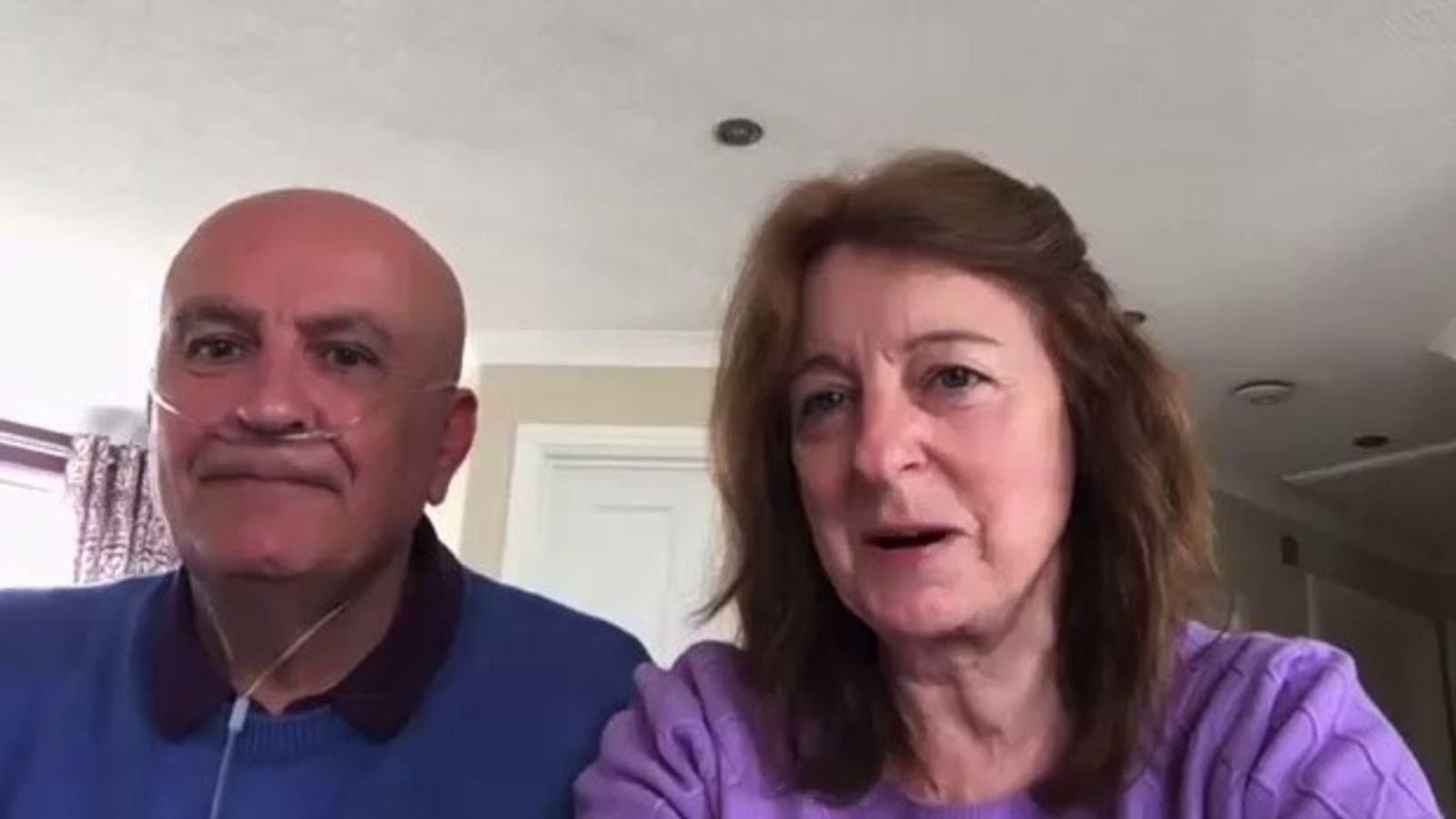Nurses’ strike begins as couple wait and hope that long-awaited transplant is not a casualty of pay dispute


Each day Ron and Maxine Flewett wait for the phone to ring, hoping it is the news they have waited 20 months for.
Mr Flewett has a health condition that causes scarring on the lungs – he relies on a constant supply of oxygen and now he is waiting for a transplant.
His wife, who is also his carer, says the call could come at any time – “no pre-warning, the call will just come out of the blue,” she told Sky News.
But as his situation becomes more desperate, the nurses’ strike, which began earlier tonight, has added another complication to an already difficult set of circumstances.
Read more:
Union promises to protect patients during strikes
Health secretary ‘treating nurses as criminals’
GMB votes to accept NHS pay offer after Unite rejection
It is expected that NHS services will see “exceptionally low” staffing numbers between now and when the strike ends just before midnight on Monday. Nurses make up a quarter of NHS staff and are the biggest proportion of the health service workforce.
NHS England has warned that the number of rescheduled appointments due to strike action is set to hit half a million next week.
Mr and Mrs Flewett have not been told that transplant services will be hit but, with a transplant requiring two operating theatres and two sets of medical staff, they can’t help but be nervous.
Mr Flewett said: “I’ve waited 20 months – with strikes, I don’t know if I’ll lose my one opportunity – I’ll never know, but that may be the case.”
Advertisement
Please use Chrome browser for a more accessible video player
0:46
Ron and Maxine Flewett spoke to Sky News about how the nursing strike has added to their health worries
His wife added: “If he has to go to hospital [during the strike], will he get the treatment he needs? I shall be glad when it’s over and will feel a lot more relaxed.”
The nurses are driven by the failure of their wages to keep up with the increased cost of living but Health Secretary Steve Barclay has called the strike “premature” and “disrespectful” to other unions.
Please use Chrome browser for a more accessible video player
0:45
Barclay: Nursing strike ‘disrespectful’
Pat Cullen, general secretary of the Royal College of Nursing, said there were exemptions in place for services including emergency departments, intensive care units, neonatal units and paediatric intensive care units.
But she said the bigger risk to patients was from a massive shortage of nurses, saying there are “tens of thousands of vacant nursing posts”.
Please use Chrome browser for a more accessible video player
0:41
RCN: ‘National exemptions in place’
Mrs Flewett said that the nurses she and her husband had met had been “worked off their feet” but concerns about her husband’s health at such a time are playing on her mind.
She said: “Something has to be done to make sure the NHS is as good as it was in the past.
“At the moment we’re dangling on a piece of string that it could not only be down to the lungs but down to whether they’ve got enough staff and doctors needed to work at the efficiency they need to.
“It’s a matter of life and death – it’s as simple as that.
“If Ron doesn’t get a transplant, he won’t be here.”
The strike comes ahead of a meeting of the NHS Staff Council, made up of health unions, employers and government representatives, which will discuss the government’s 5% pay offer.